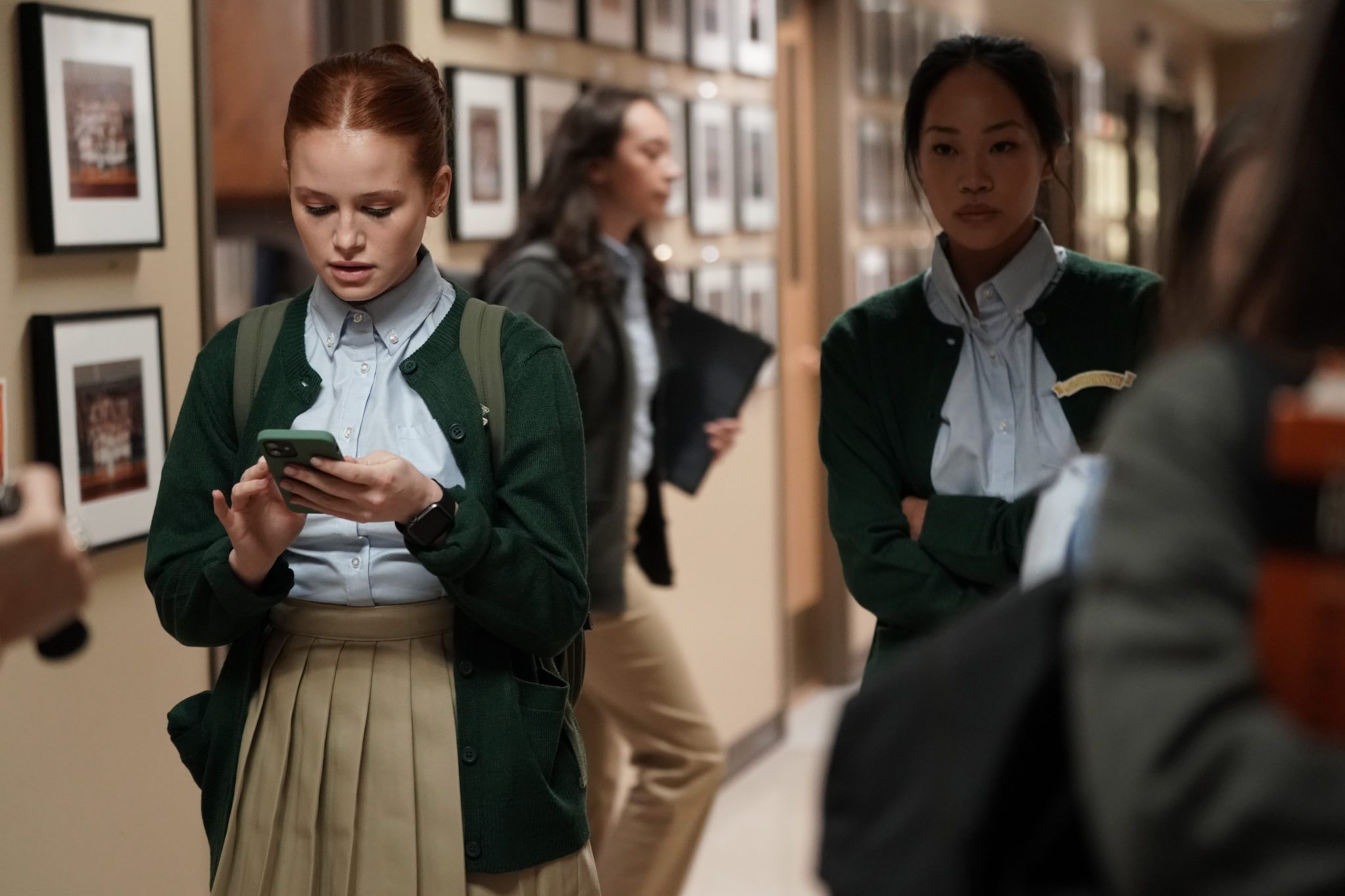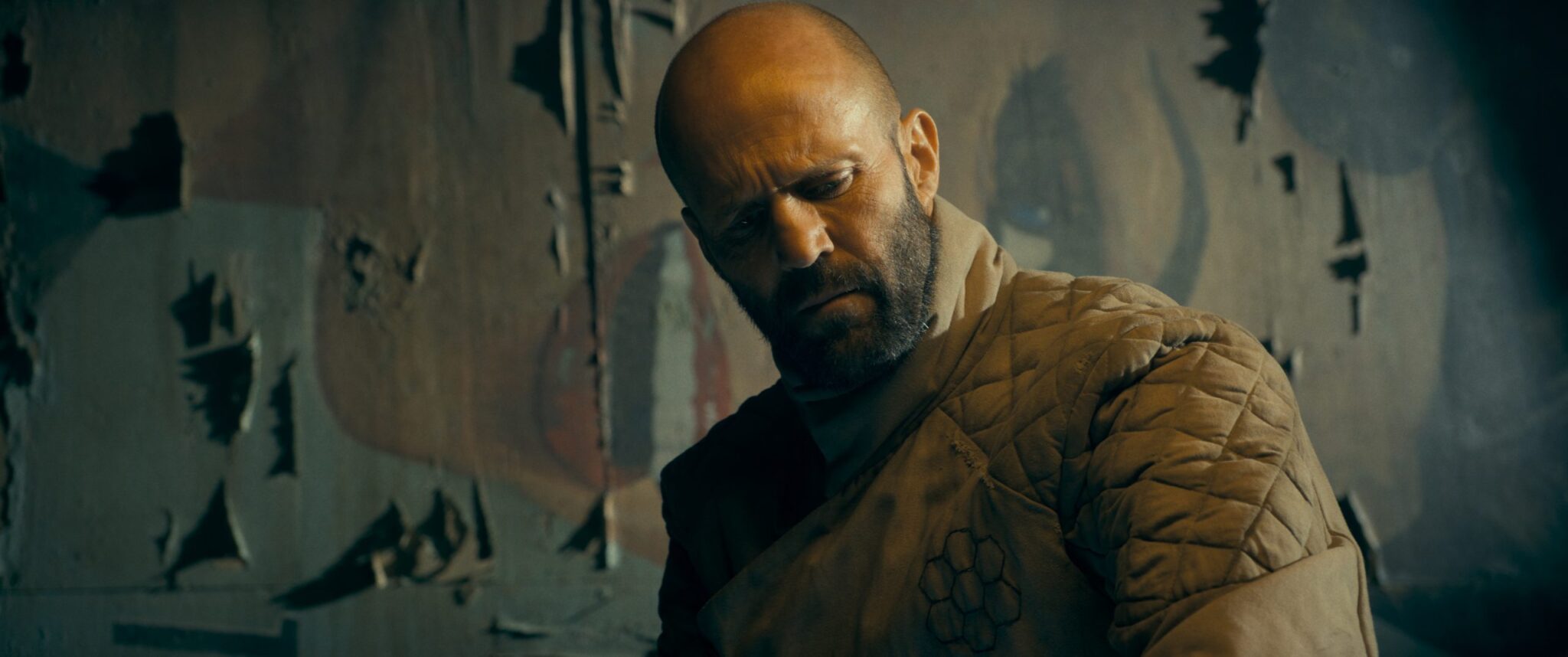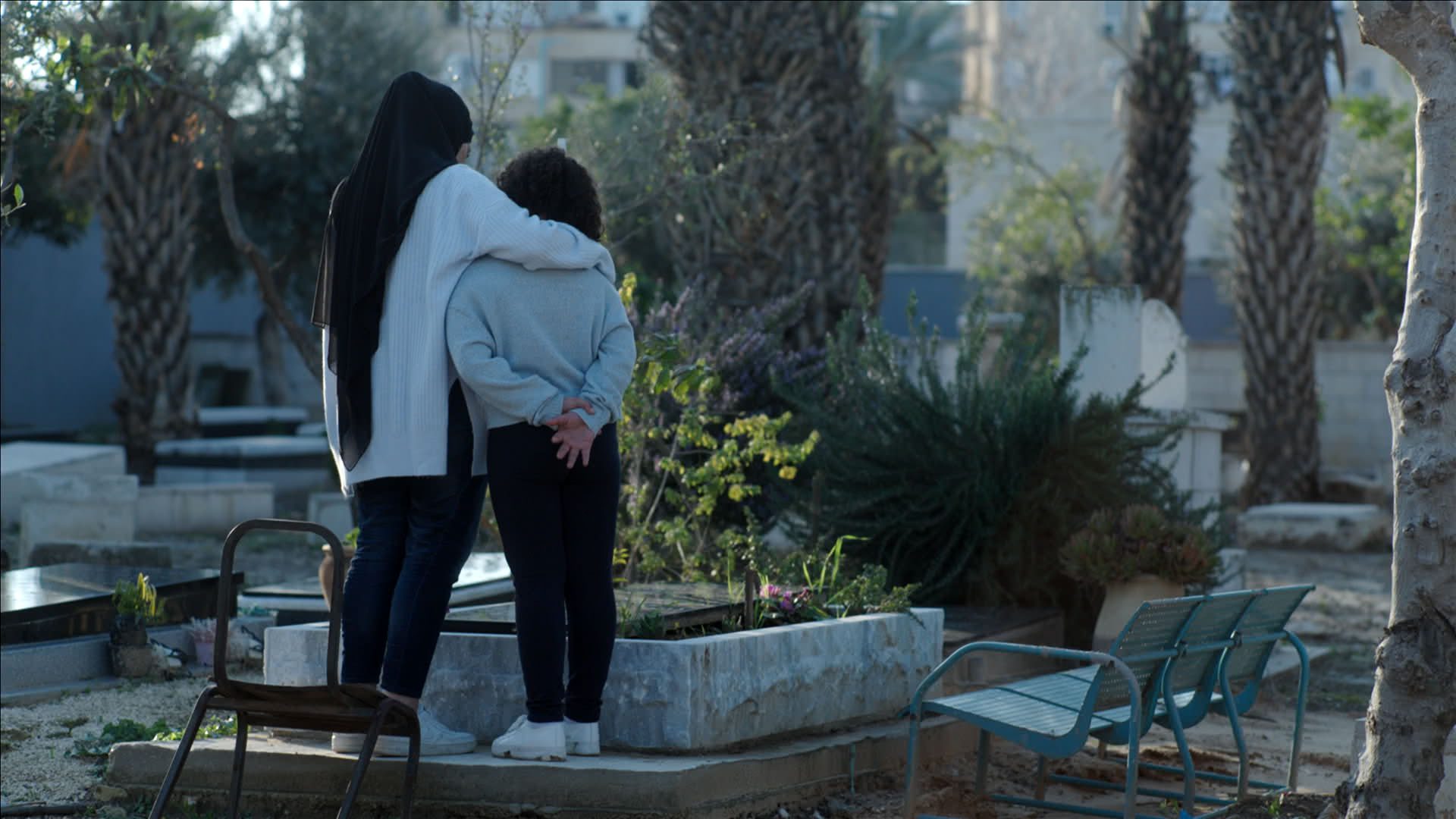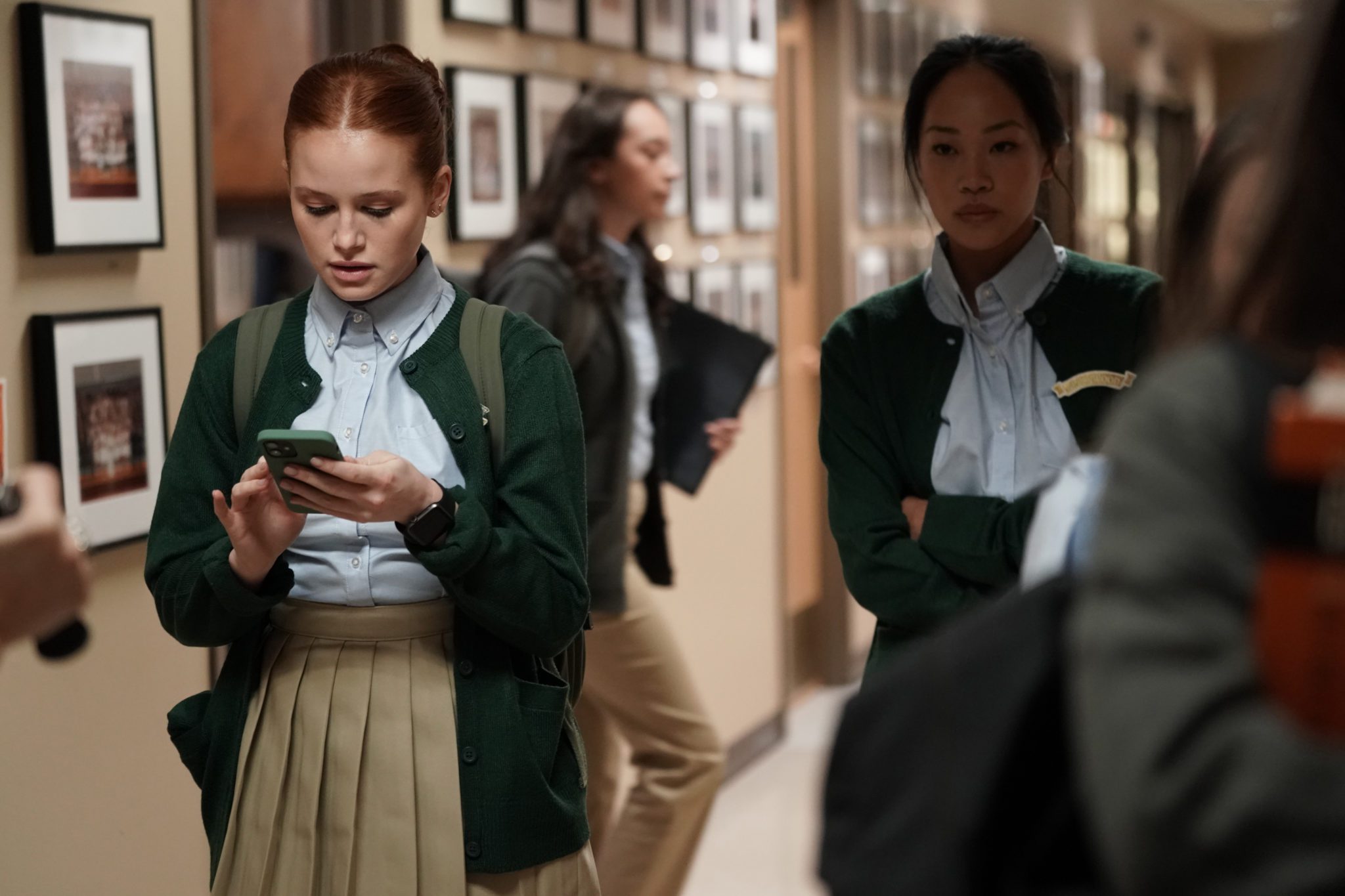
Jane stars Madeline Petsch (Riverdale) and Chloe Bailey (Swarm) as two friends who attempt to deal with the overwhelming stress of school and their shared grief that threatens to undermine all their present achievements. For Olivia (Petsch), this comes to fruition when she receives a deferment on her early application to Stanford, causing her to spiral into a nervous wreck. To channel these feelings, she convinces Isabella (Bailey) to join her in using their friend Jane’s Instagram account to wreck havoc on those who Olivia views as obstacles and annoyances in her life at Greenwood Academy. Quickly, her attachment to the power that Jane’s account has to bully and seemingly get rid of those she is frustrated with becomes addicting and it leads her on a path of increasingly psychotic and petty revenge that has deadly consequences to both her academic integrity and the real relationship she still has with Isabella.
The center of this film is Madelaine Petsch, whose role as Cheryl in Riverdale has made her a notable teen actor and she carries this on in this project as both the star and a producer of Jane. What connected her to the script was the characters panic and anxiety which stem both from her sudden grief and prolonged personal academic expectations that she is failing to meet. Petsch hoped audiences would take what they wanted from the film, citing some might be on a crazy wild ride for an hour and a half but the film itself isn’t often fun. Although, as a person with anxiety, to connect to with such a cold character feels like you’re not alone in the midst of your own mental health struggles.
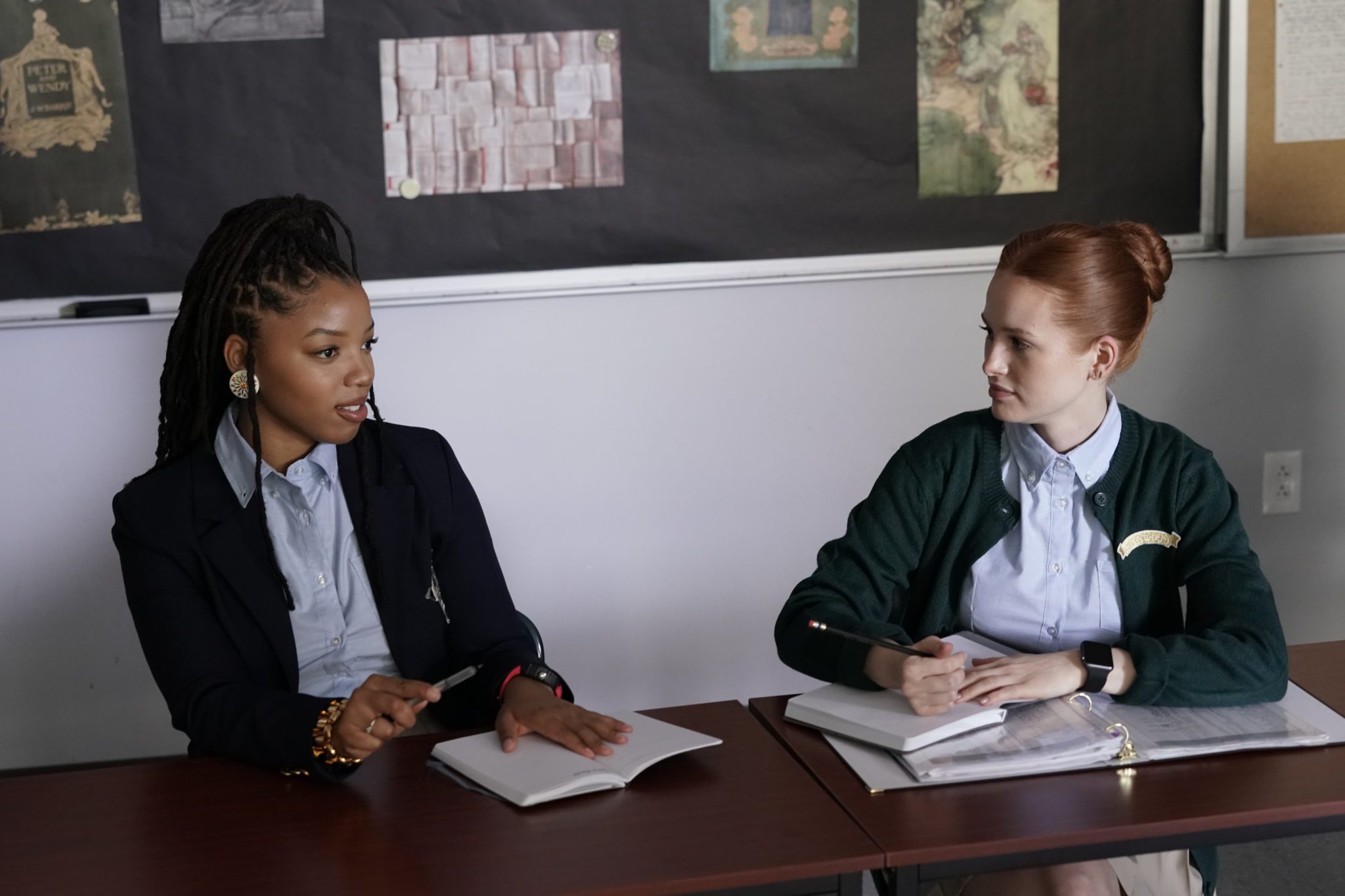
Jane starts off with an enticing but morally questionable hook as Olivia and Isabella take advantage of the fact that their close friend, Jane, committed suicide and gain access to her unattended social media. The film (and the girls) try to justify these actions as a way to channel their grief and, in some ways, honour her legacy by using her to give themselves the life they believe that Jane would have wanted for them. This is, of course, a pretty absurd and unlikeable mindset for the audience to connect with and, while we can care and empathize with Jane’s desperation to get into a school that she’s spent her whole life working to get into, it doesn’t really justify many of her heinous actions. Now, a film certainly doesn’t need a character that you can constantly empathize with but it certainly needs one you can engage with. While there are strong scenes that see Olivia using Jane to get rid of a rival for her position as leader of the debate team, the rest of the film sees her targeting people that she doesn’t really have strong reasons to mess with.
Jane tries to use the character’s disturbing psyche as a way to continue to engage us along with this story but it never really commits to completely alienating us from Jane’s motives. (After all, they seem to be pretty grounded at the end of the day, especially compared to some of the more absurd modern onscreen psychopaths who are driven by practical greed or ego like There Will be Blood‘s Daniel Plainview, American Pyscho’s Patrick Bateman or even more recently Swarm’s Dre. Olivia is a lot more subdued but still has such a haunting and sociapathic nature that many scenes cause you to stop caring about her, while only being mildly entertained by her manic actions.
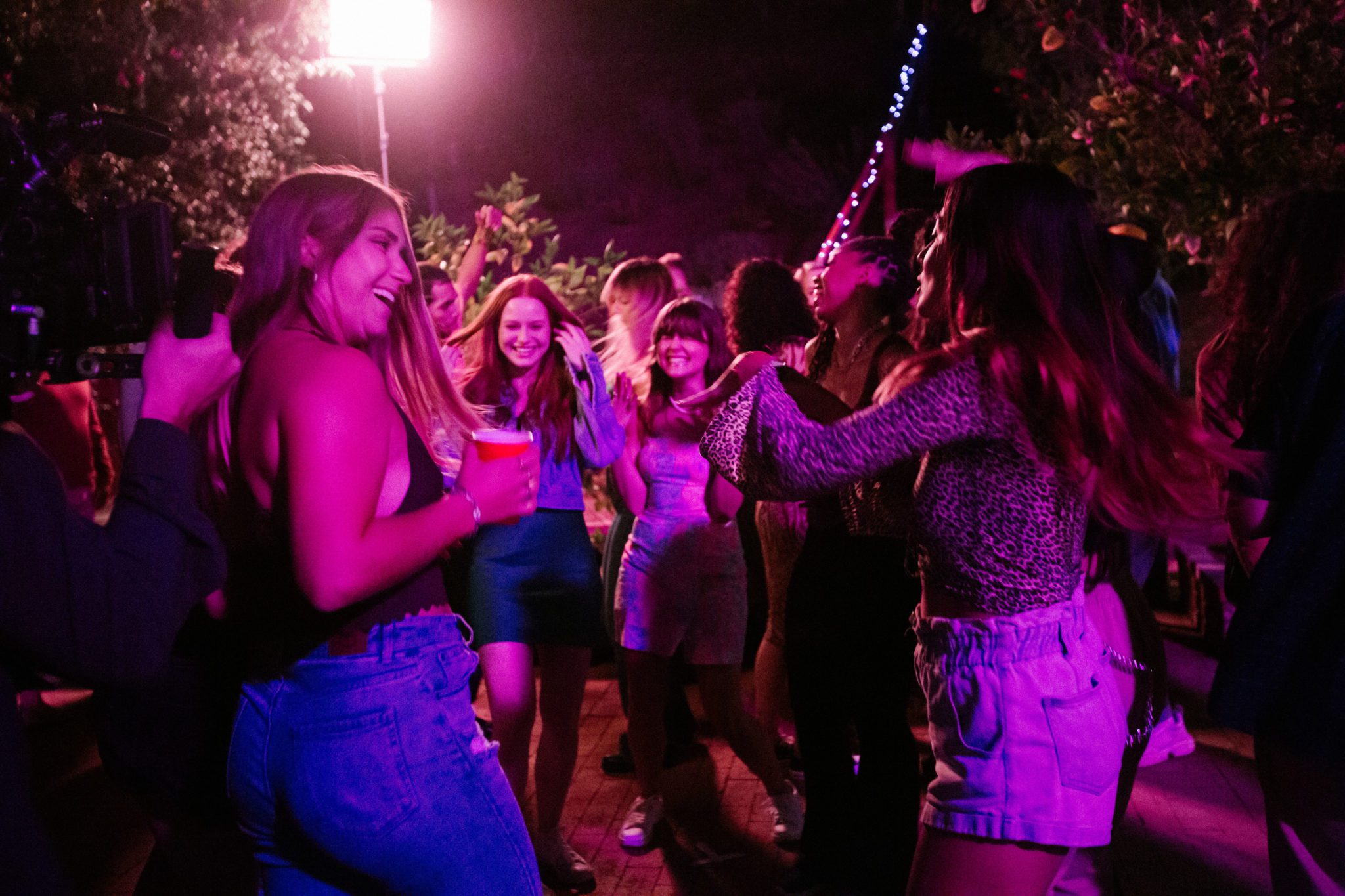
The acting is solid across the board and I was constantly engaged by these characters. Madelaine Petsch shows she can go beyond the more over-the-top emotions that a show like Riverdale often required of her. She is able to play this disassociated teen very connivingly as she constantly finds reasons to justify herself in her own eyes. The way that she speaks and holds herself, often looking in long thought about how she can continue to hurt others for the right reasons is intriguing and helps you believe this character. The same goes for Chloe Bailey whose character is a more what you might expect out of feature film’s teenage girl but still plays the more emotional moments well with Madelaine.
Although the screenplay had its issues, the direction is well done. Sabrina Jaglom knows how to use simple cinematic techniques to make this film an uncomfortable watch. Many scenes play out in wide shots, some almost seeming to come from inhuman angles that act like security cameras watching the wildness of Olivia’s journey play out. The cinematography is well coupled to display the excellent mise-en-scene, the element of this film that I considered the strongest. Everything is purposefully placed in each frame and set so that the action of the film keeps moving while making consistently striking visuals on the screen. They also emphasize the stress and eeriness of Olivia’s psyche, distorting what she sees or doing the opposite to make the more bone chilling visuals seem normal to her until she realizes how scary they really are.
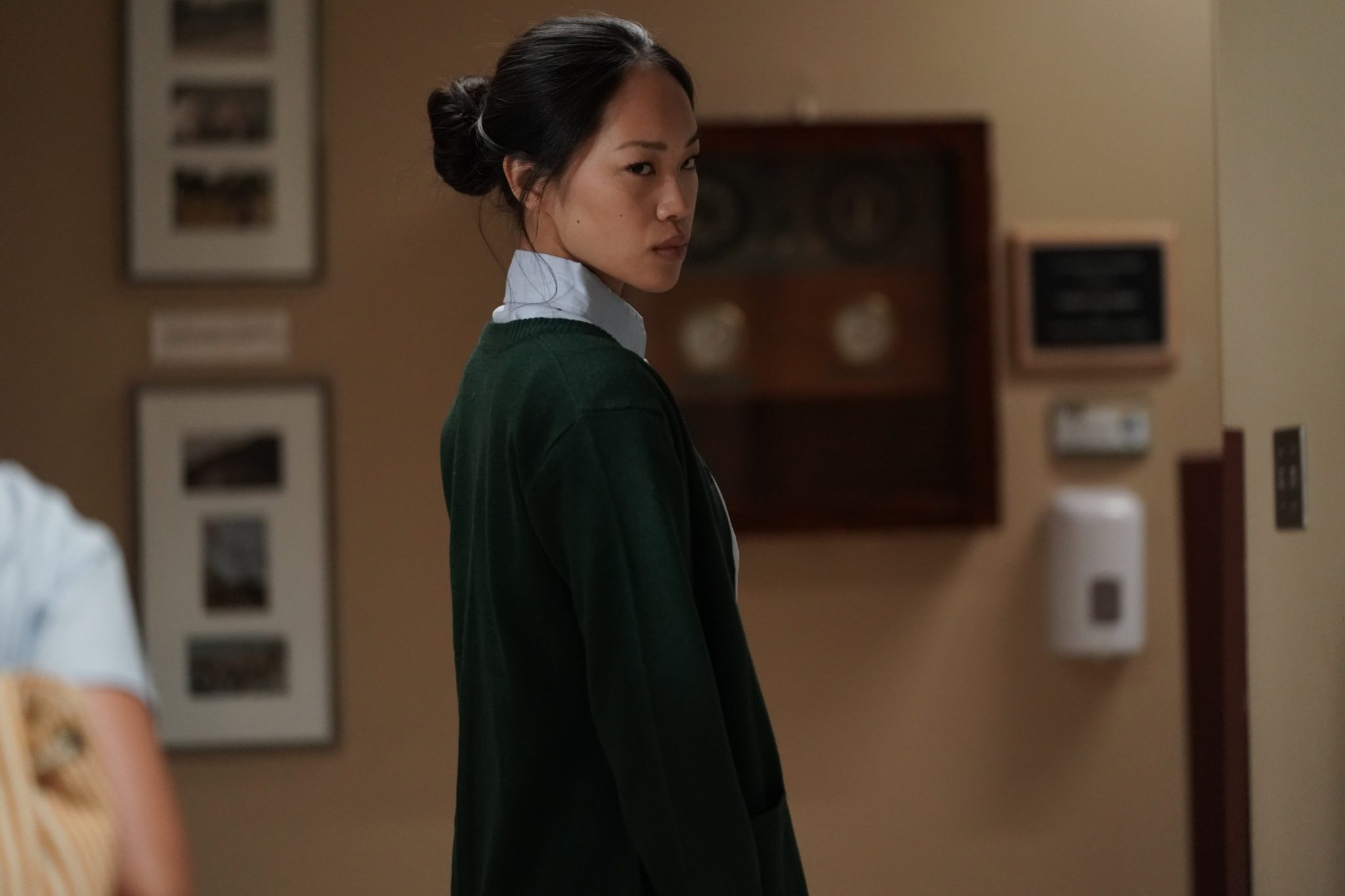
The film left me mixed on what the meaning of it may have been. At first, it seems to be about the spirals of grief and how hurt people can hurt people, a theme that’s very constantly addressed in a world where it can be so easy to hurt others through the powers of the internet. It can be about how young people need to value those people who care about them in their lives, and that those dealing with mental health should not only feel allied by those who share their ailments but by those who live beside them. Unfortunately, for me, the script left these questions open and Jane never settles in on what it wants to say.
Jane is available on VOD now.

